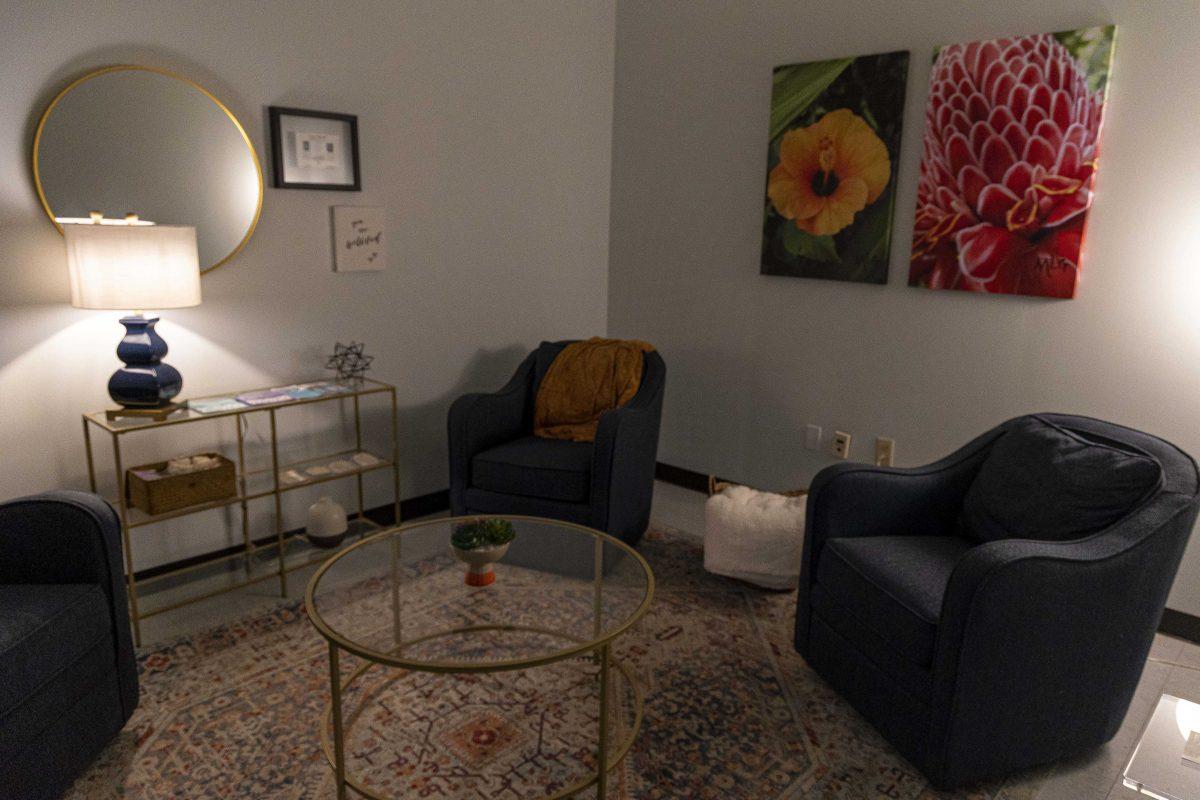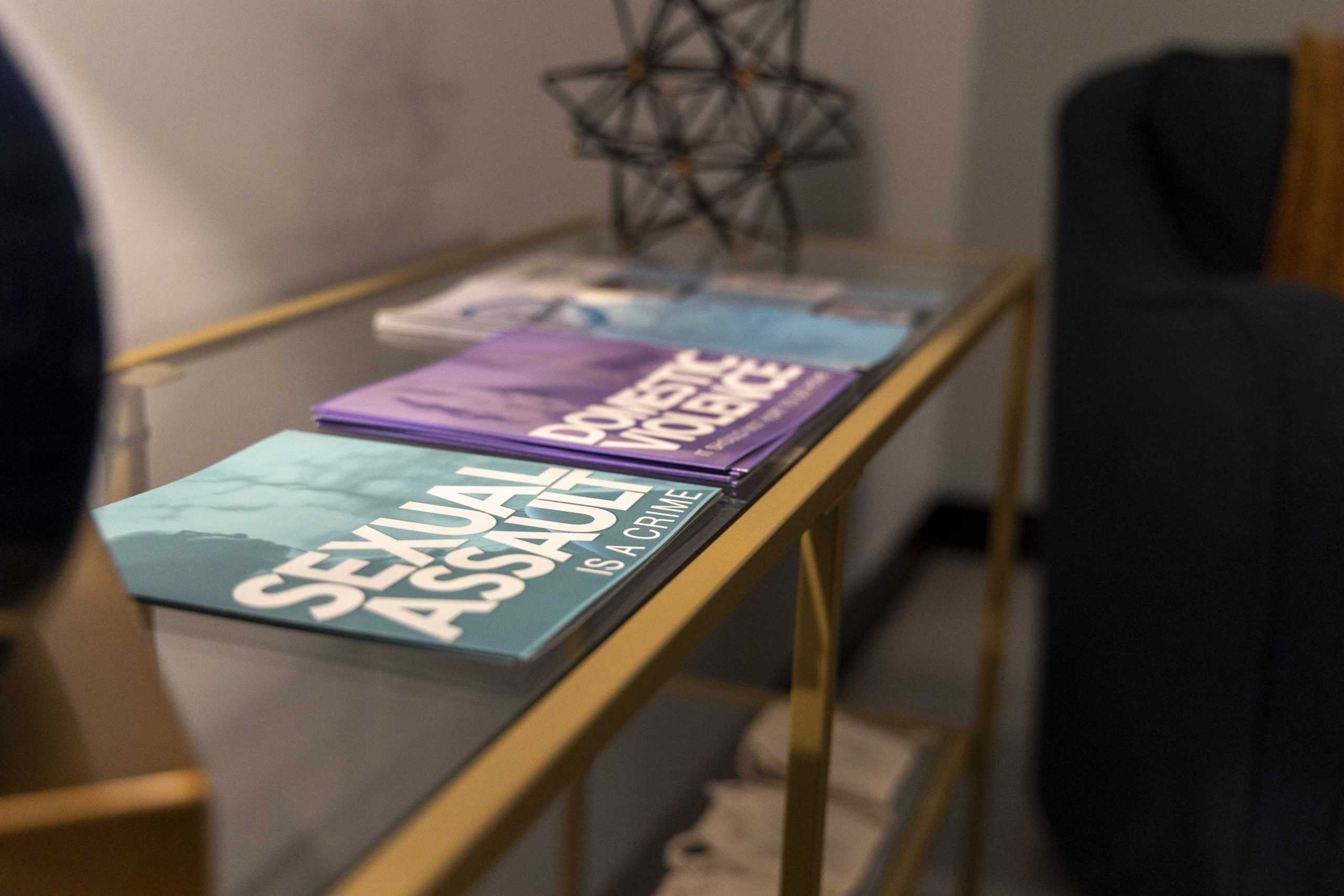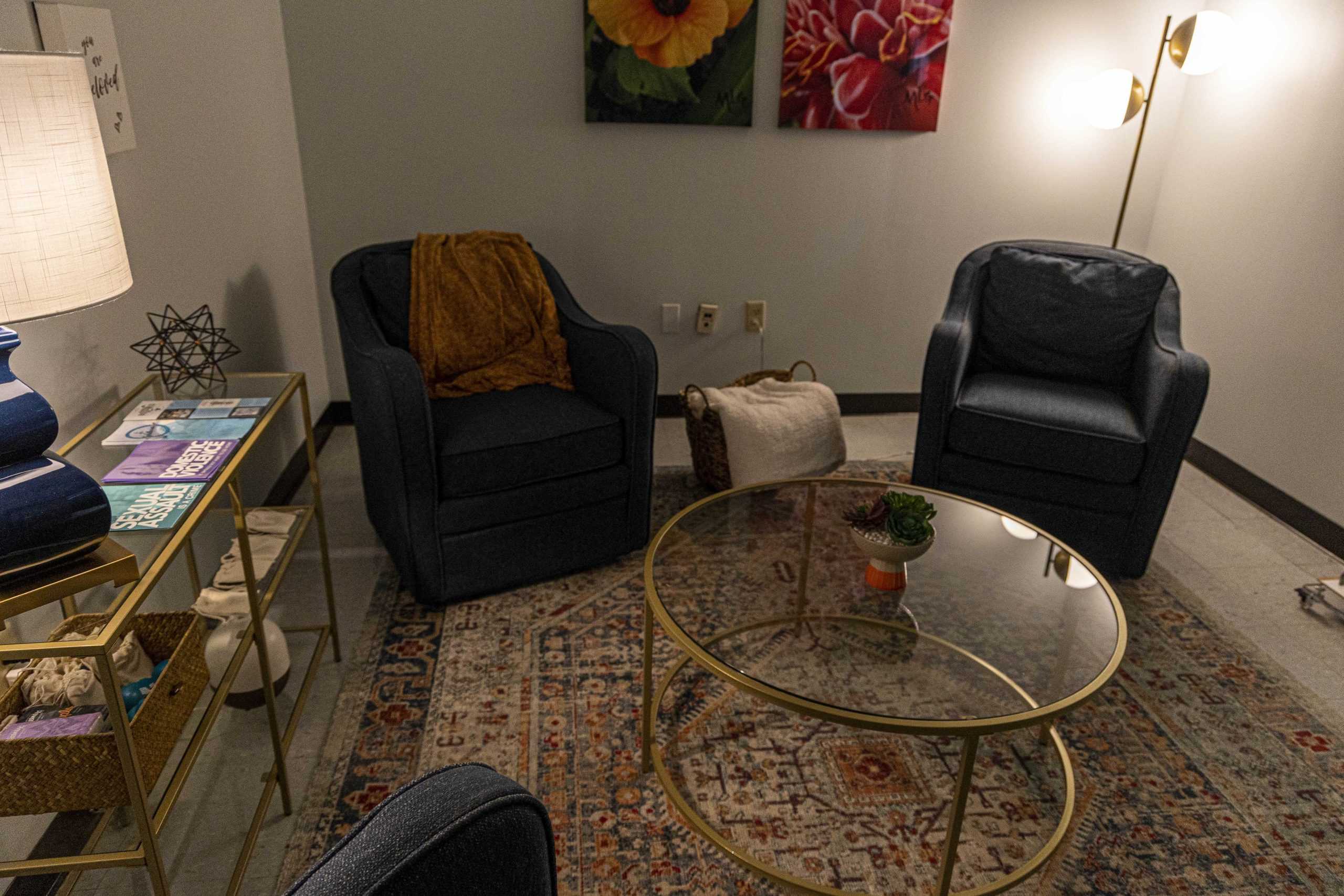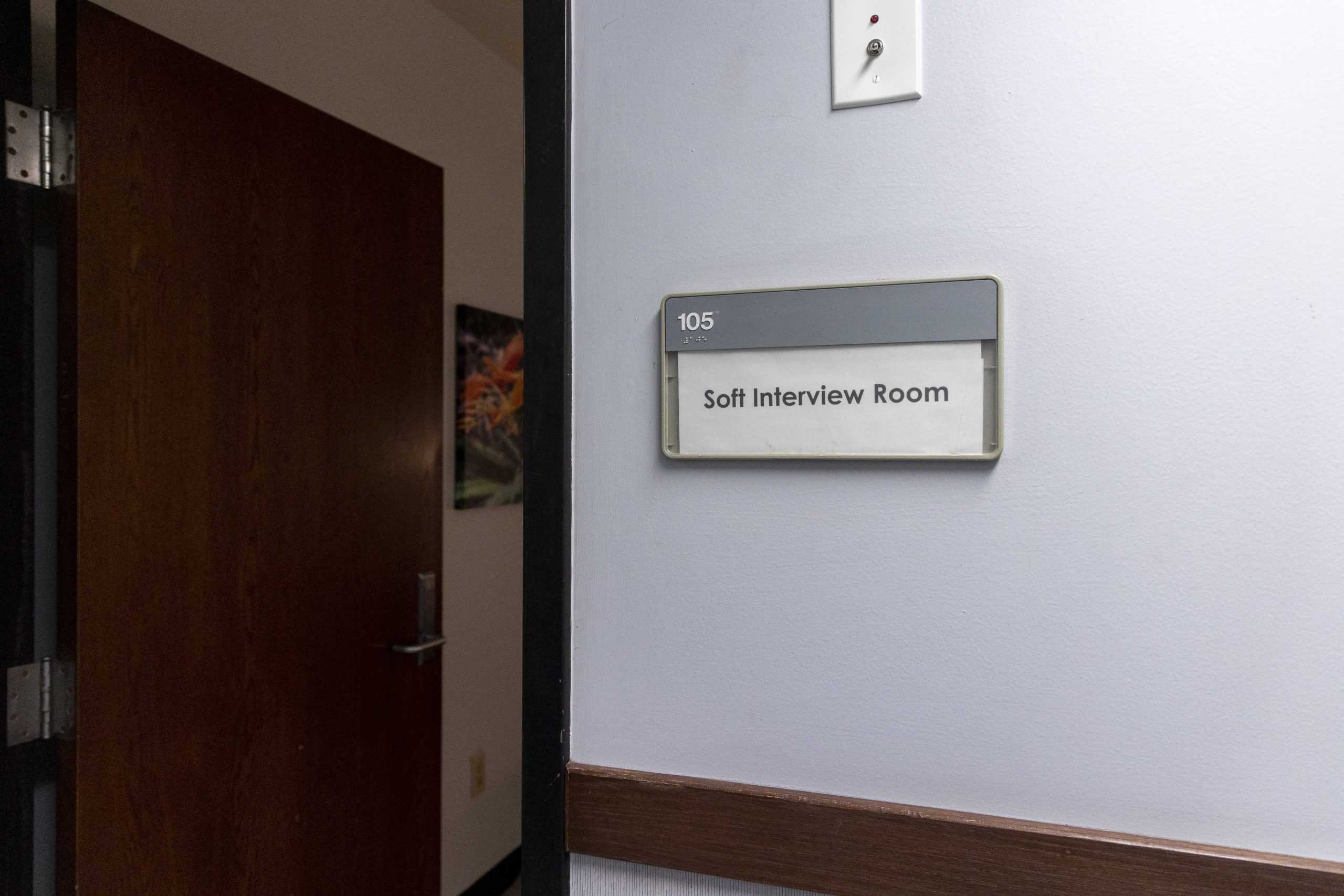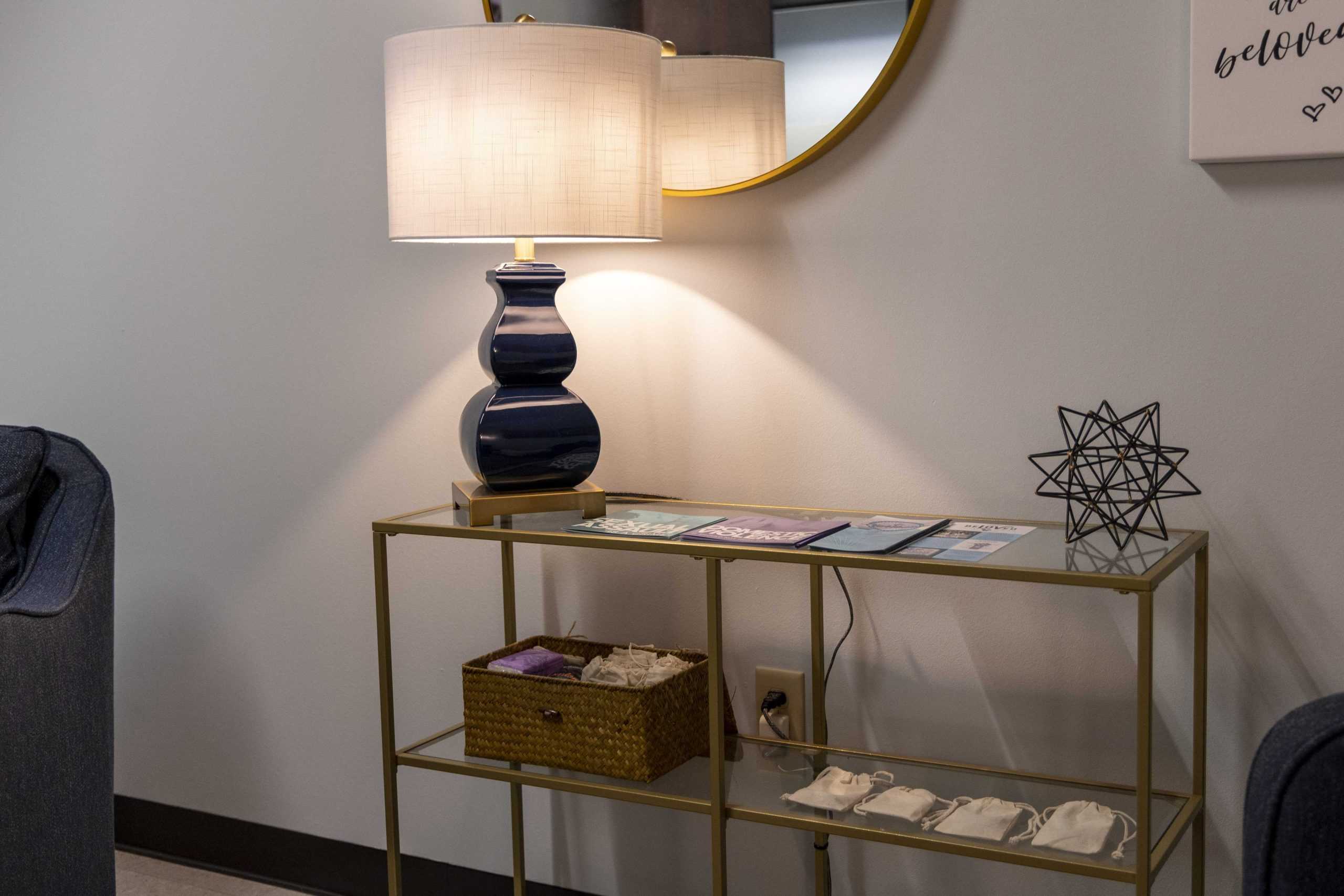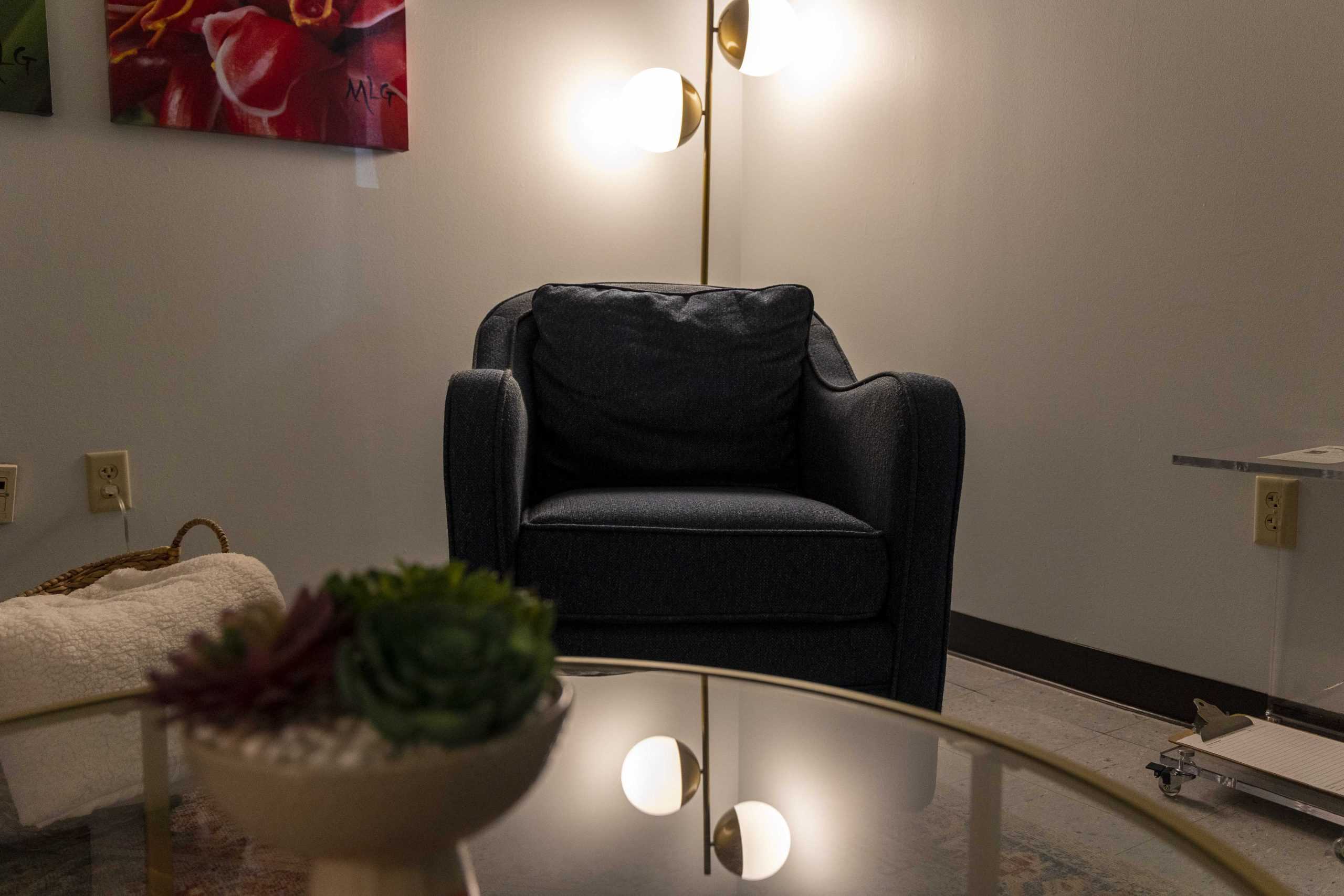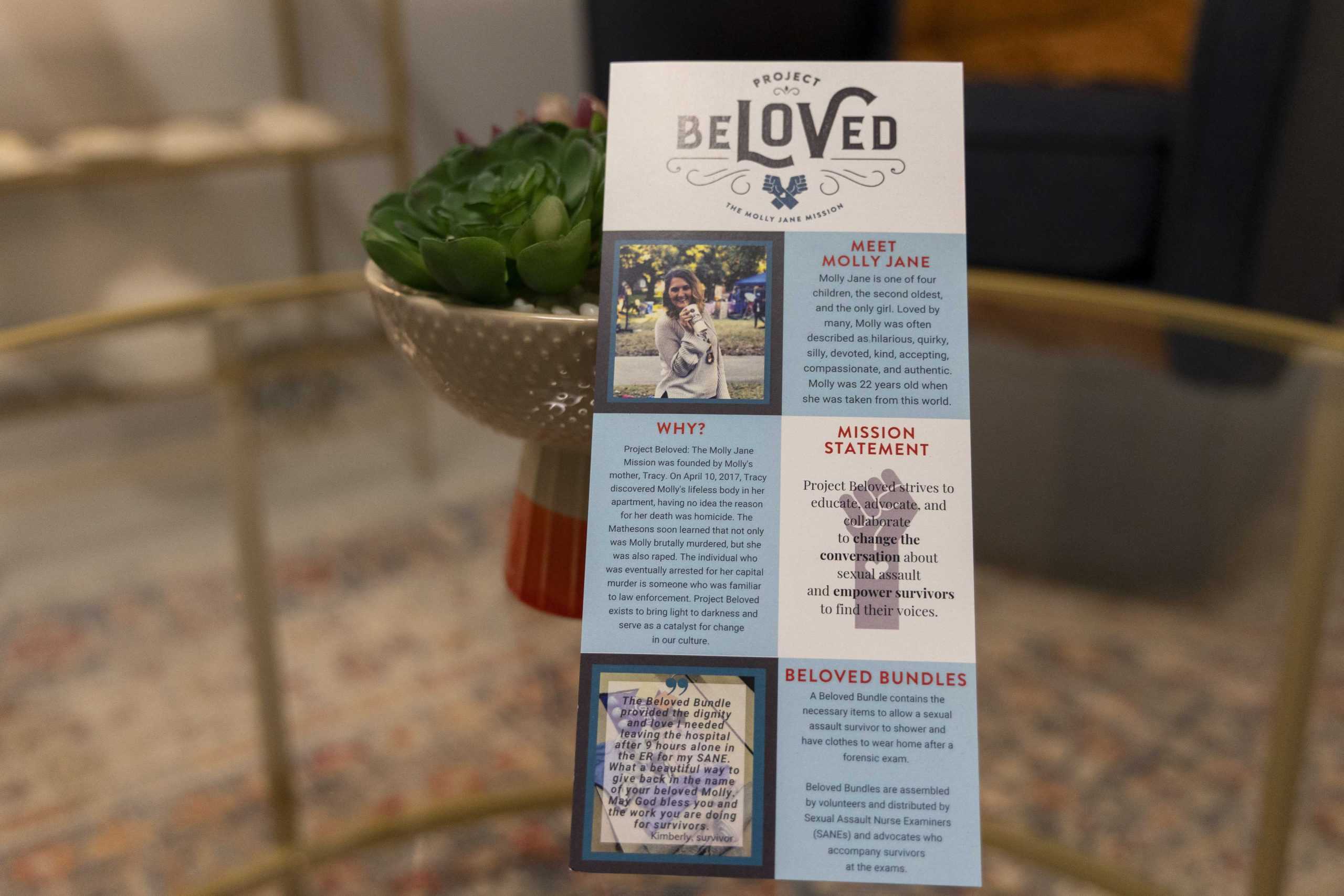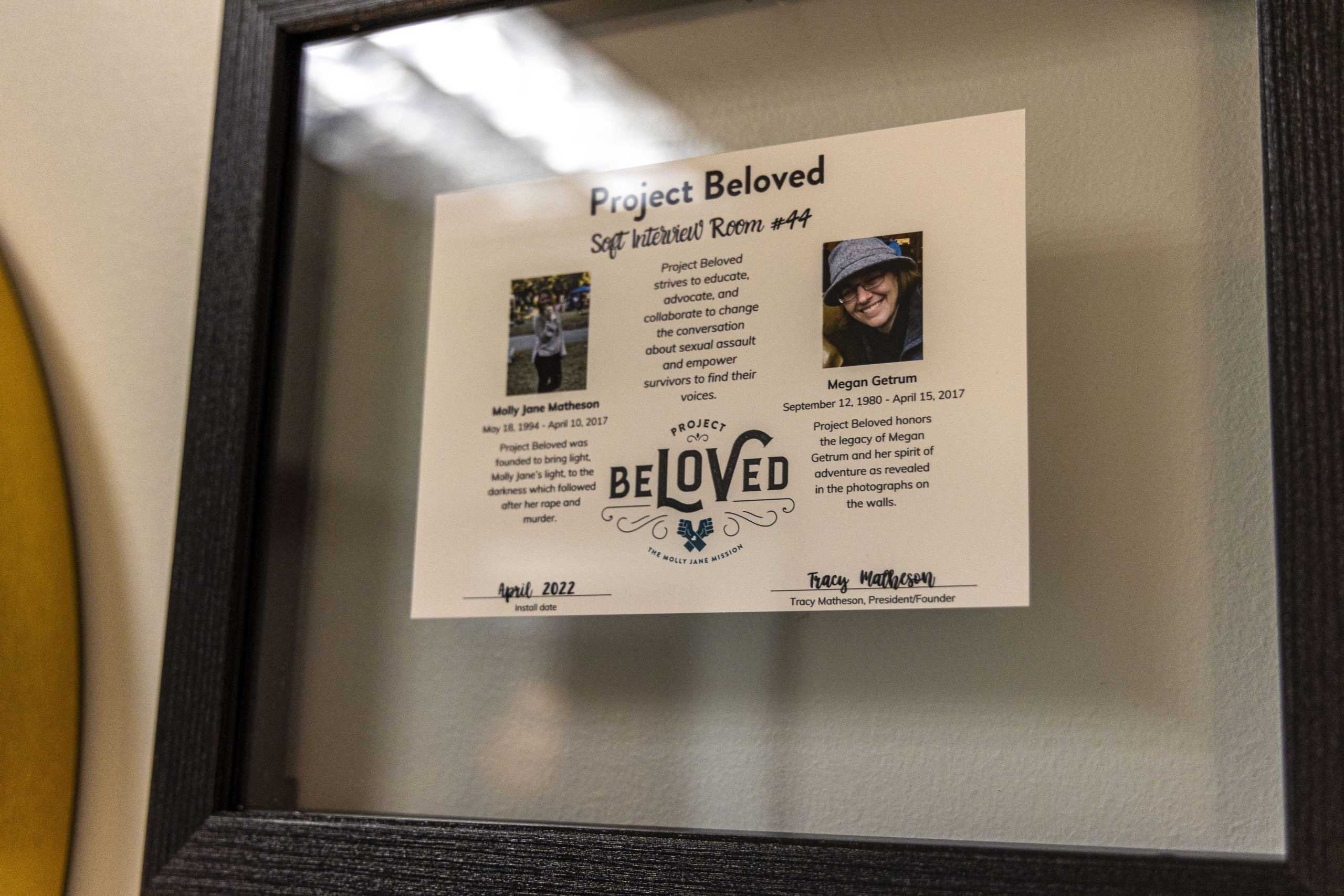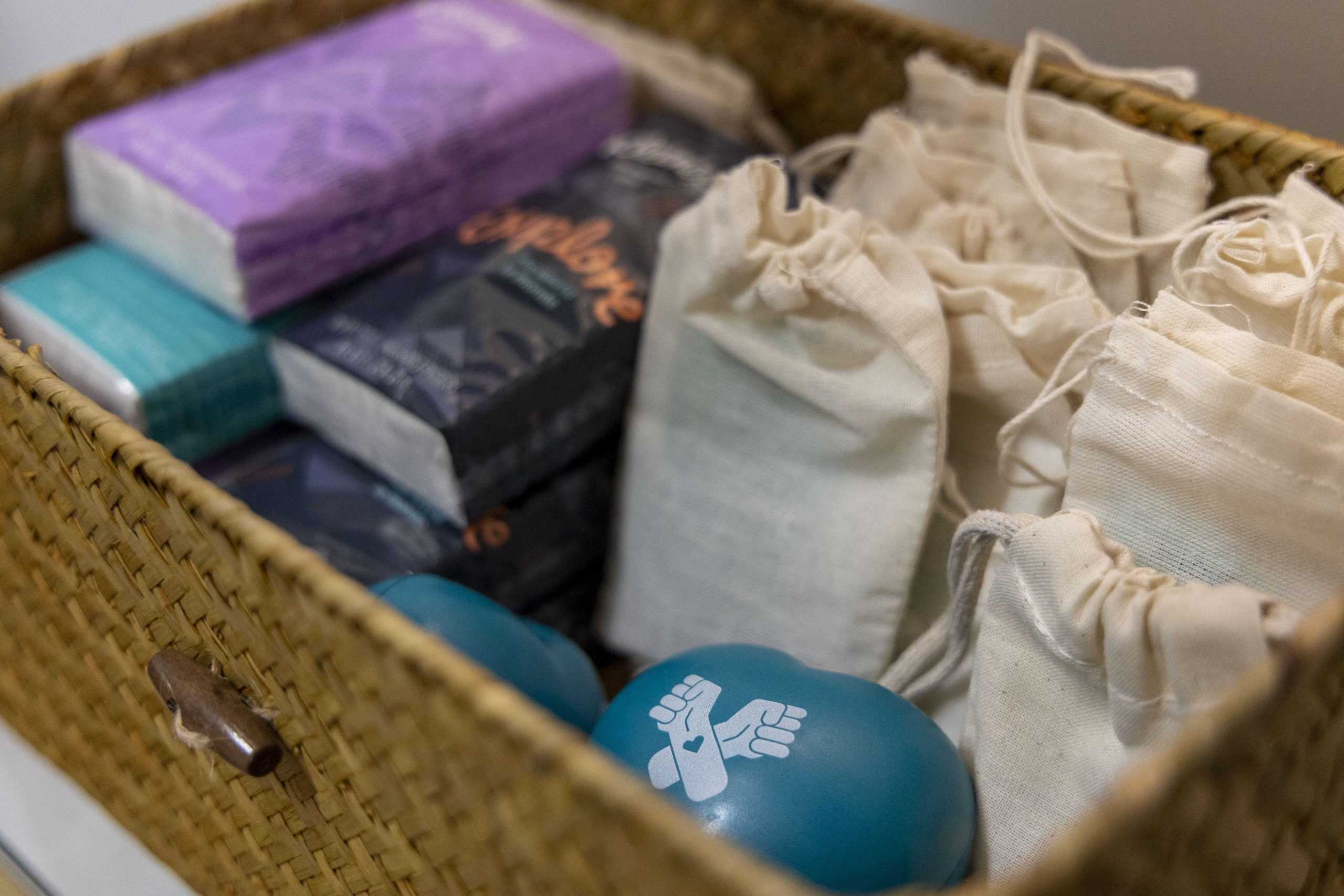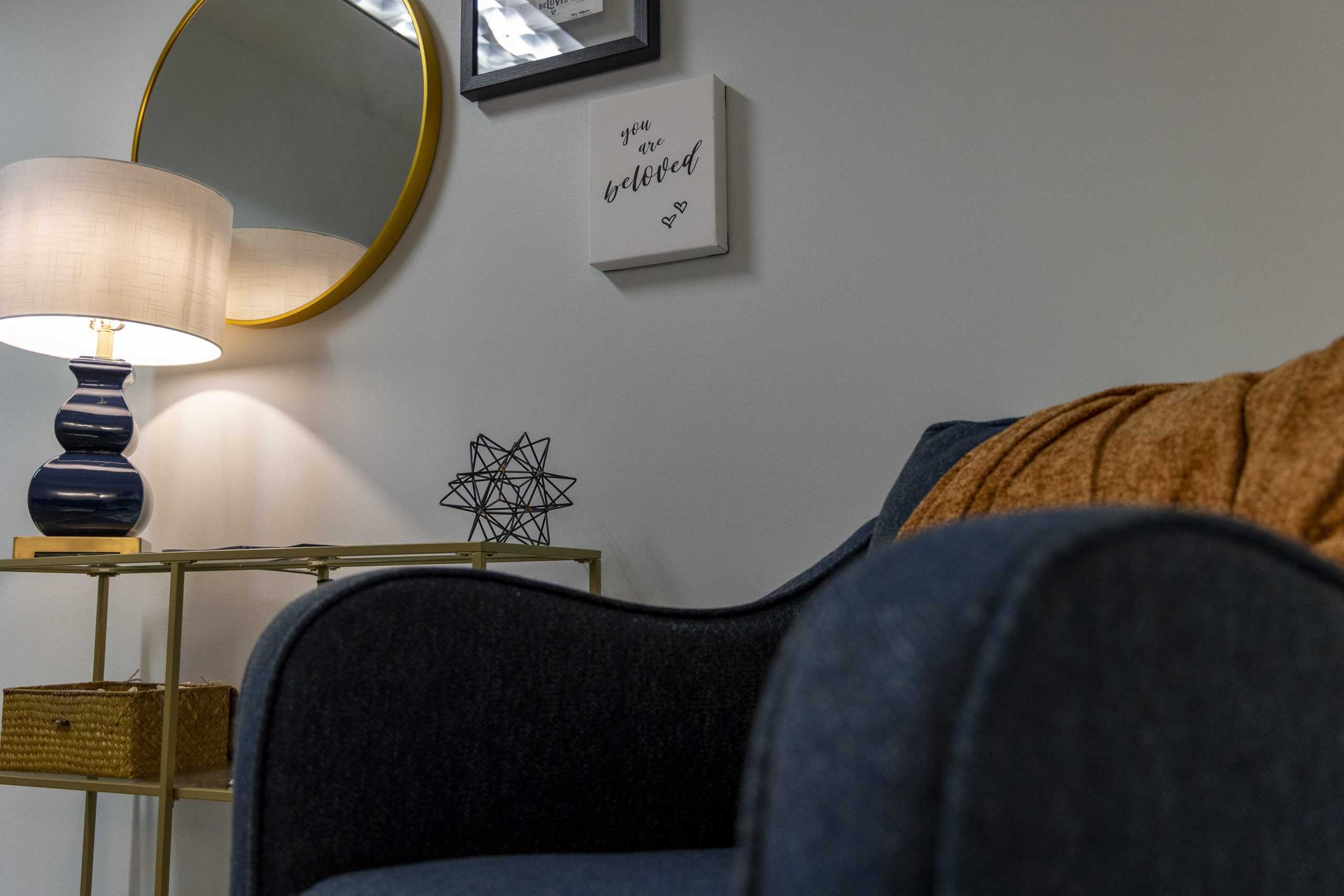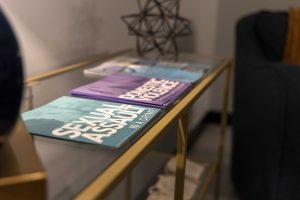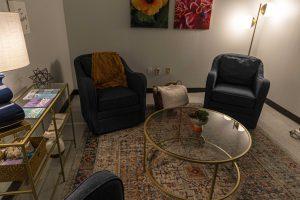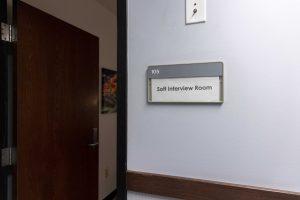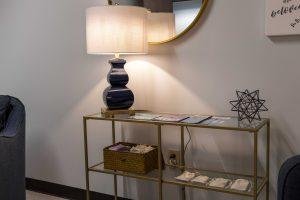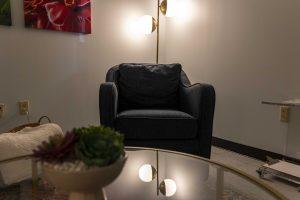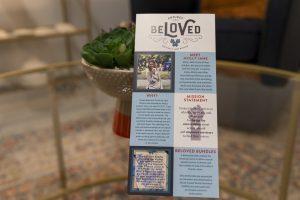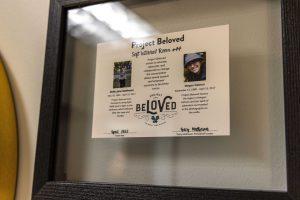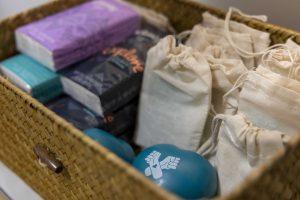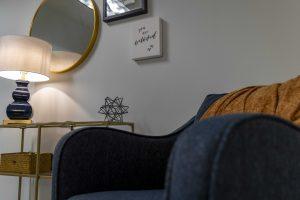The LSU Police Department became the first in the SEC to implement a soft interview room with the help of Project Beloved, according to LSU Sergeant Sarah Drake.
Drake said she has been interviewing victims in the soft interview room at the LSU Police Department for the past eight months. She said that the room offers victims an inviting setting different from a police station.
“If you’re walking in the halls of the police department, it seems cold. It seems hard,” Drake said. “We wanted to create a room that will calm victims’ nerves.”
She said that the decorations donated by Tracy Matheson, founder of Project Beloved, such as weighted blankets, soft chairs and dimly lit lamps, are in place for a survivor of an attack to feel comfortable talking with police.
In addition to being the first in the SEC, Drake said LSU Police is 44th in the nation to implement a soft interview room. She hopes that LSU will be a catalyst for other schools in the SEC and the nation to implement soft interview rooms for students.
Anyone who reports a crime can enter the soft interview room, according to LSUPD Officer Kim Bass.
“This room serves as a place for someone to speak about a sexual assault or a vehicle burglary,” Bass said. “The more information someone tells [detectives], the more we are able to help and prevent further crimes from occurring.”
Matheson, the founder of Project Beloved, lost her daughter, Molly Jane, to rape and murder on April 10, 2017.
After Molly’s death, she learned everything she could about sexual assault, the investigation of sexual assault, trauma and how they are all woven together. She did this through reading, watching videos and attending training sessions surrounding the topic.
The pain Matheson and her family felt is what started Project Beloved, a nonprofit with a vision to create “a world where survivors of sexual assault are heard and believed, perpetrators are prosecuted and justice is served.”
“Project Beloved is a nonprofit that I founded in the aftermath of the rape and murder of my daughter, Molly Jane,” Matheson said. “Our mission statement is that we strive to educate, advocate and collaborate to change the conversation about sexual assault and empower survivors to find their voices.”
One of Project Beloved’s main initiatives is working with law enforcement agencies to install soft interview rooms in various locations across the nation, Matheson said. By the end of 2022, they will have installed 57 soft interview rooms across the nation.
“We have a couple at an air force base, we’ve done some for the Department of Homeland Security, we’re going to be doing a room for the FBI next year, sheriff’s departments and local police departments around the country as well,” Matheson said.
Now that there’s a better understanding of trauma and sexual assault, there is a best practice called a “trauma-informed response,” Matheson said. This means anyone who interacts with a victim should add to the victim’s comfortability, not the opposite. One component of this response is a soft interview room.
“Now we know better and so we need to do better,” Matheson said. “Part of doing better is providing a trauma-informed space, like a soft interview room. It has to be more than just a soft interview room, you have to be trained in what it means to conduct an investigation that is trauma-informed.”
Heather Tatom, a volunteer for Project Beloved, understands the importance of sexual assault advocacy. Tatom is a sexual assault survivor that found Project Beloved when it delivered “Beloved Bundles” on the one-year anniversary of Molly Jane’s death to the Tarrant County Women’s Center, where she volunteers as a Victim’s Advocate.
“[Beloved Bundles] are backpacks with clothing and hygiene items that we hand out to victims that we go to the hospital to visit,” Tatom said. “This was the first time I got to meet Tracy and hear about Project Beloved and it’s just grown since then as far as my involvement with her and the organization.”
While Tatom has never been in a soft interview room herself, she still advocates their importance in places of law enforcement.
“The soft interview room’s goal is to: A) make the person feel comfortable,” Tatom said. “They’re about to have to tell this horrific story about what has just happened to them and it’s not comfortable or easy to do. This environment provides a space for them to do that more comfortably. It provides a much more welcoming space than a typical police interview room.”
Tatom said creating more survivor-centered and trauma-informed ways of handling sexual assault victims is key in our society.
“If we get to a point where survivors feel freer to tell their stories and tell the details of it by being more trauma-informed, officers have better avenues to actually go after criminals and rapists,” Tatom said. “If they do better investigations because of that, then hopefully district attorneys take more rapists to court and get them behind bars where they belong.”



